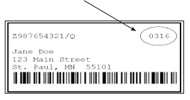Beware of magazine scams that use high-pressure sales tactics and make false claims. These types of scams often take on the following forms.
- Fake Invoices Sent Through the Mail
Companies will send magazine subscription offers that look like renewal notices or bills. They will use words like “publisher,” “billing,” or “service” in their names and purposefully make their letters look like they are coming from the magazine company. But if you look at the fine print, they are actually selling you a new subscription, usually for two or three times the cost.
- Door-to-Door Sales
People with compelling stories will come to your door selling magazine subscriptions for a good cause, such as money for college, going to camp, or even a non-profit organization like a hospital. The subscription’s cost is really high and often times you will not get what you paid for. The people selling the magazines may also get scammed with false promises of easy sales and high payouts.
- Telemarketing Calls
Telemarketers will call and trick you into paying for expensive multi-year magazine packages. They will pretend to call from the magazine company and say that you won a big prize (such as a $1,000 gift card or luxury watch), or are entitled to “bonus” magazines, or a lower payment or credit. To receive the prize, bonus, or credit, you have to confirm or provide your personal and financial information and participate in a tape-recorded “verification” of the order. The scammers will then change the recording or the terms of the offer. When you don’t get what you were promised, they will use the recordings to force you to pay.
Back To Top
Tips to Avoid Magazine Scams
Here are a few tips to avoid being ripped off.
- Do Not Purchase Any Magazines Through Salespeople. Do not provide solicitors with your personal or financial information. Many of these companies refuse to cancel people’s packages, which can lead to credit card disputes, debt collection actions, and even identity theft. The companies may also sell or trade your information to other companies, which could lead to more high-pressure telemarketing calls.
- Read the Fine Print. Look at any “renewal” notice carefully, including the fine print and the name of the sender. Often times these notices identify, in small, hard-to-read print, that the notice is a solicitation from a third party company. If you do decide to buy a magazine subscription, make sure to ask for and read the terms of the agreement. Sales persons will often misrepresent the cost and cancellation terms.
- Contact the Publisher Directly. When you receive a “renewal” invoice, contact the publisher directly to figure out whether the notice is genuine. Confirm the cost to renew a subscription. Do not trust the phone number listed on the notice, but look up the telephone number on the publisher’s website or on the magazine itself.
- Find Out When Your Magazine Subscription Ends. To avoid renewing your subscription earlier than you want or need to, check your receipts to find out when your magazine subscription ends. You may also be able to find this information on the mailing label of the magazine. It may be listed in a “MMYY” format as seen below.

Back To Top
What To Do If You’re a Victim
If you believe you are a victim of a magazine scam, or would like to report a suspicious “renewal” or solicitation offer, you may file a complaint with the Attorney General’s Public Inquiry Unit, the Federal Trade Commission, and the Better Business Bureau.
For more information on magazine scams, see the following links:

